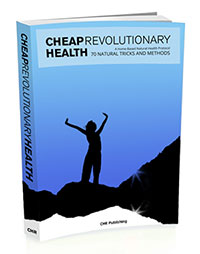How to Sleep Less
How to sleep less? Sometimes being too comfortable in life can be quite demotivating. This is definitely true of too much sleep. I'm sure you've woken up groggy before after sleeping too late, and sometimes the tempo for the whole day seems to be set up by how we wake up. I have definitely noticed it with eating, that sometimes eating less can keep your mind more clear and give you more energy. Overeating, especially of addictive 'comfort' foods like starches, can make you feel very lethargic, tired and ... bored. Overindulging can put you in a lazy mode.

24-hour clock for polyphasic sleep experiment. Taking a nap at midday could allow you to sleep less at night if you had very regular sleep and nap times. Polyphasic sleep is said to work best if the waking times are equally long.
Just like eating less is only possible if we eat high micronutrient foods and cut out addictive foods, succeeding in sleeping less is also dependent on the quality of sleep. Well, at least partly. The timing of your sleep can count a lot too, as well as how you live your life during the day. Below is quite an exciting list of sleep hacks to experiment with on your road to sleeping less, living more, and feeling positively 'charged' during the waking hours.
Ideas for Sleeping Less
- Polyphasic sleep. Proponents claim that you can sleep as little as 2-4 hours per day following this routine. Buckminster Fuller claimed to achieve two hours of sleep per day. For example, to sleep 4.5 hours per day, you would need to sleep 3.5hours of core sleep at a correct time for your body (circadian rhythms), plus three 20-minute naps each day, at regular intervals. This is just not practical for me now while working full time but one day I would love to try it! (I wonder how travelling to other countries would work.... Perhaps you would have to drive or take a train everywhere and ensure you would be able to sleep every four hours or so uninterrupted.)
- Wake up at the correct part of your sleep cycle, i.e. not when you are at deep sleep when you would end up feeling groggy. The phone app (Sleep Cycle) allows you to monitor sleep cycles and automatically wakes you up at the correct time. You place it on the corner of your bed by your pillow and it monitors your movements with the phone's motion sensors. It determines your depth of sleep according to how much you move during different times of the night. (Best to have the phone on 'airplane' mode.)
- Hydration. Staying hydrated will improve the quality of your sleep and thus the hours of sleep you need. For best results drink natural spring water (not mineral water).
- Very regular sleeping times. Sleeping too much may in some cases be because of habit. Once the sleep times are regular, the body can use this time more efficiently.
- The first 4-5 hours of sleep are usually deeper sleep phases than the rest. It is especially important, then, not to be woken up at these times.
- Blue light keeps us awake. So when watching late night TV or working on the computer, wear yellow glasses to filter out the blue light. This should allow you to get sleepy. Ideally of course avoid these activities and any bright lights close to bedtime.
- Daylight-simulating lights. The blue light in the natural daylight wakes you up. So go outside in the morning on sunny days and use a daylight simulating light or SAD light (10,000 lux) on cloudy days and during the winter months to wake you up. For our circadian rhythm to keep to correct rhythm, we need bright daylight during the day - lack of bright light during the day can cause insomnia and stop you from sleeping well. Read more about this fascinating finding here: Natural Remedies for Insomnia.
- Don't eat sugar or carbs near bedtime, but have a small, healthy protein snack before bed.
- Humidifier has been mentioned as helping with sleep (as well as with complexion).
- Sleep at sunset, wake up at or before sunrise. According to the Polyphasic Society, you generally get more REM sleep around dawn and more Delta band activity around dusk (slow wave sleep). So sleeping just after dusk or at least being in deep sleep between 9pm and 12 midnight would be most beneficial. As a result, you may become a very early morning person.
- Quit stimulants that sap your energy (e.g. caffeine, sugar, alcohol, some supplements).
- Don't eat difficult-to-digest food in the evening. Eat your last meal at 6pm.
- GABA, amino acids (especially theanine), trace minerals, magnesium and potassium before bedtime can reportedly help to sleep less. Keep in mind that amino acids may not be safe in supplement form but are best derived from food.
- Five or more minutes of breathing exercises and meditation before bedtime has been reported to help to sleep less.
- B12 in the form of methylcobalamin has helped me wake up earlier naturally. Read: B12 - the Energy Vitamin. If you suspect vitamin or mineral deficiencies, take a multivitamin and a liquid multi-mineral supplement in the morning. Vitamins and minerals work synergistically so taking individual ones in isolation of the others may not work as well.
- Don't snooze. Using the snooze-button on your alarm makes you tired. Try to have sleeping times where you don't need an alarm clock. For example, go to sleep so early that you will definitely wake up at the right time each morning. Use the bed only for deep sleep and sex. No lazying in bed. Get up straight away when you wake up, or do a couple of stretches first and then get up.
- Some people report using certain electrical frequencies (CES Machine) on their brain while sleeping. Needless to say, this sounds dangerous, but if you are interested, you can find more information from the Institute of HeartMath.
- Listening to Pzizz, Lightning Bug or other phone apps can help you sleep faster. They give you soothing sounds and/or natural sounds to as well as voice queues, with just enough variation day-to-day to not become boring.
- What you need is more energy, not more sleep time. So anything that gives you more energy, like staying hydrated, eating easier to digest food (like green juices), correcting deficiencies, and being in optimal health is the best way to sleep less. The body uses oxygen, sun, water, and food for energy. To get more energy your body needs:
- Natural daylight
- Clean air and deep breathing
- Good quality water (spring water)
- Calm and inspired mind. No frustrations, stress or trauma.
- Movement and stretching: These enable nutrients and hormones to flow.
- Easy-to-digest, high-micronutrient diet.
- Elimination of any conditions that may stop your body functioning and sleeping optimally: e.g. sleep apnea, asthma, allergies, etc.
- 30 minutes of physical activity per day is key to optimal functioning of your body.
- Make sure you love your bed and sleep environment. Keeping in mind that sometimes being too comfortable can make you sleep too much. Especially make sure that the room and your covers are not too hot. You could experiment on sleeping on a harder mattress or even on a camping mattress, because this can help some people sleep better. Try out what works best for you. Keeping the windows open and the room cool, and experimenting with medical-grade negative ionizers to clean and 'nourish' the air can improve the quality of sleep as well.
- Help your blood circulate with cold showers or swimming in cold natural water (be quick, and then get warm again), brushing your skin, stretching, moving, doing energy exercises, etc. Don't let your muscles get stiff, work through them every day if necessary to keep blood flowing properly in your whole body.
- Antioxidants in the form of food, negative ions and alkalinity can give you lots more energy. Read more here.
- Wake up 10 minutes earlier each morning for one week, and the next week 10 minutes earlier again. This method of gradually shifting your sleeping times suits some people better than making sudden changes.
- Powernap during the day. Generally it is advised not to nap during the day because you won't be able to go to bed in the evening. But if you can take a nap regularly at the same time each day, for example at lunch time, you might be able to manage to shift to some version of polyphasic sleep. Though challenging for most people, it might be worth a try because generally we perform best just after waking up. Steve Pavlina did a trial where he slept 12.30-5am every night and 6-7.30pm nap every evening, 6 hours in total. He said he felt fine as long as he was eating light, green juices and fruit. But if he ate something heavier, like a bowl of rice, he would start feeling tired. He said after the initial transition period he felt quite energetic on this type of biphasic sleep rhythm.
'Ubersleep: Nap-Based Sleep Schedules and the Polyphasic Lifestyle' by Pure Doxyk:
'The Power Nap Formula For Busy People: Boost Your Energy in 20’ Or Less' by Bill Valandreas:
Keep in mind that if you are detoxifying, or if your health is somehow compromised, it is not a good idea to try to sleep less. In those cases you should give your body extra sleep. But once you are in good general health, sleeping less might just give you that new edge on life.
'The 4 Hour Body: An Uncommon Guide to Rapid Fat Loss, Incredible Sex and Becoming Superhuman' by Timothy Ferriss:
Continue reading....
Eating for Energy: How to Achieve Exploding Energy Levels, Sleep Less and Wake Up Fresh
High-Micronutrient Diet
David Wolfe: Longevity Now - book summary
Brain Allergies
Cellular Awakening
Caffeine Blues - book summary
How to Stop Aging
How to Beat Tiredness
We Recommend
Latest Articles
Most Popular Articles
Collection of Best Raw Food Articles
Juice Fasting Articles
Book Summaries
Natural Remedy Library A-Z

Edition 3.0: Cheap Revolutionary Health Ebook: 68 Natural Tricks and Methods - The Amazing Power of Small Everyday Tasks
To be safe, please consult your health-care provider before attempting self-treatment for health issues.
Navigation
Home Latest Articles Conditions A-Z Raw Food Juice Fasting Recipes My Health Journey Best ArticlesGet in Touch:
Contact Us Instagram: "Good Life Meals"About CHR:

Ulla is the Editor of Cheap Health Revolution, covering natural remedies and health solutions. Read more about Ulla and this website here: "About CHR"












